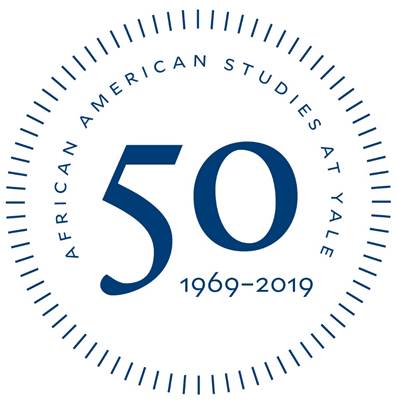A Call to Action | Black Lives Matter
The faculty of African American Studies at Yale stand together in mourning as we unequivocally condemn the murder of George Floyd. And Breonna Taylor. And Ahmaud Arbery. And Tony McDade. And now, Rayshard Brooks. These African Americans died needlessly, brutally, and unjustly by the guns and knees of police and self-declared white vigilantes from February to June 2020.
We continue to mourn and oppose the deaths of so many, too many, who have been killed during encounters with the police or their surrogates: Eric Garner. Sandra Bland. Michael Brown. Aiyana Stanley-Jones. Tamir Rice. Tanisha Anderson. Philando Castile. Freddie Gray. Atatiana Jefferson. Trayvon Martin. Oscar Grant.
Say these names. Say her name, too. Say all of their names.
Our work as scholars and teachers in African American Studies requires bearing witness to acts of anti-Black subjugation and analyzing the entrenched systems of racial capitalism that authorize such seeming “eruptions” of violence. We also live what we study. Many of us in our department must navigate the maze of racism’s varied forms in our own lives, from deflecting quotidian routines of microaggressions to shielding ourselves and others against racially motivated physical assaults. Together, though, our multi-racial, international, economically diverse, and gender queer collective of faculty, students, and staff are resolved to eradicate practices of white supremacy and institutional racism wherever they rear their heads: across the U.S., in New Haven, around the world, and here at Yale.
Yale’s department of African American Studies closes its 50th Anniversary year facing enormous challenges. What is our mission of scholarship and teaching before the epochal convergence of the COVID-19 pandemic and these latest state-sanctioned acts of racial violence? What can scholars and students do to advance the cause of racial justice—given the weight of these events and the histories that inform them?
In the sphere of agency and influence that our department can exercise, we call on ourselves, our colleagues, our students, and the public to:
Make Our Voices Heard. On-going protests against police brutality have expanded in the wake of George Floyd’s murder. New Haven’s Black Lives Matter chapter, CT Core, and the Citywide Youth Coalition provide up-to-date information about local protests and other social justice initiatives. You can support those who march by donating to bail funds, such as the CT Bail Fund or to The National Bail Fund Network. And this link provides a wide range of connections to anti-racist efforts you can join.
Show Solidarity with Communities of Color in New Haven and CT at-large. contribute to Yale Together, a student-led fund that’s routing donations to New Haven and CT-based organizations that support communities facing the twinned impacts of COVID-19 and mass incarceration.
Take Care of Our Health. Between the risks and stresses of COVID-19 and the grievous onslaught of these recent police murders, our bodies, minds, and spirits are under great strain. The Yale Health Plan has expanded its counseling services for students, faculty, and staff. One Village Healing, a New Haven initiative, offers a wide range of wellness support. Practice a “radical act of self-care,” from the activist group GirlTrek’s list.
Study with Us. Learn with Us. In Fall 2020, AF AM Studies at Yale will offer courses that speak directly to this political crisis. Like “The Long Civil Rights Movement,” “The Life and Times of Frederick Douglass,” “From the Voting Rights Act to Black Lives Matter,” and “Black Feminist Theory,” and “James Baldwin’s American Scene.”
Demand that Yale College properly fund and support the Yale Prison Education Initiative. This innovative program offers Yale College courses to incarcerated students in CT state prisons.
Support Yale AF AM’s Efforts to Build and Grow. COVID-19 hit just when our department was engaged in a major hiring initiative. We call on Yale’s administration to reactivate those job searches and hire in the field of African American Studies.
Register to Vote. Seizing the right to vote has been a major movement in African American history and politics. Every election counts, at every level. Especially in November 2020. Let your voice be heard in the ballot box.
Since 1619, the Black freedom struggle in the U.S. has held up a crucial lens to see both the limits and possibilities of democracy as a global political project. The deaths of George Floyd, Ahmaud Arbery, Breonna Taylor, and Rayshard Brooks—together with the protests that have erupted in their wake—are changing American society and history. African American Studies must keep pace, in this moment and beyond. If the field’s task has always been clear, it is more lucid and imperative now. The faculty and staff of our department invite you to join us in this work.
